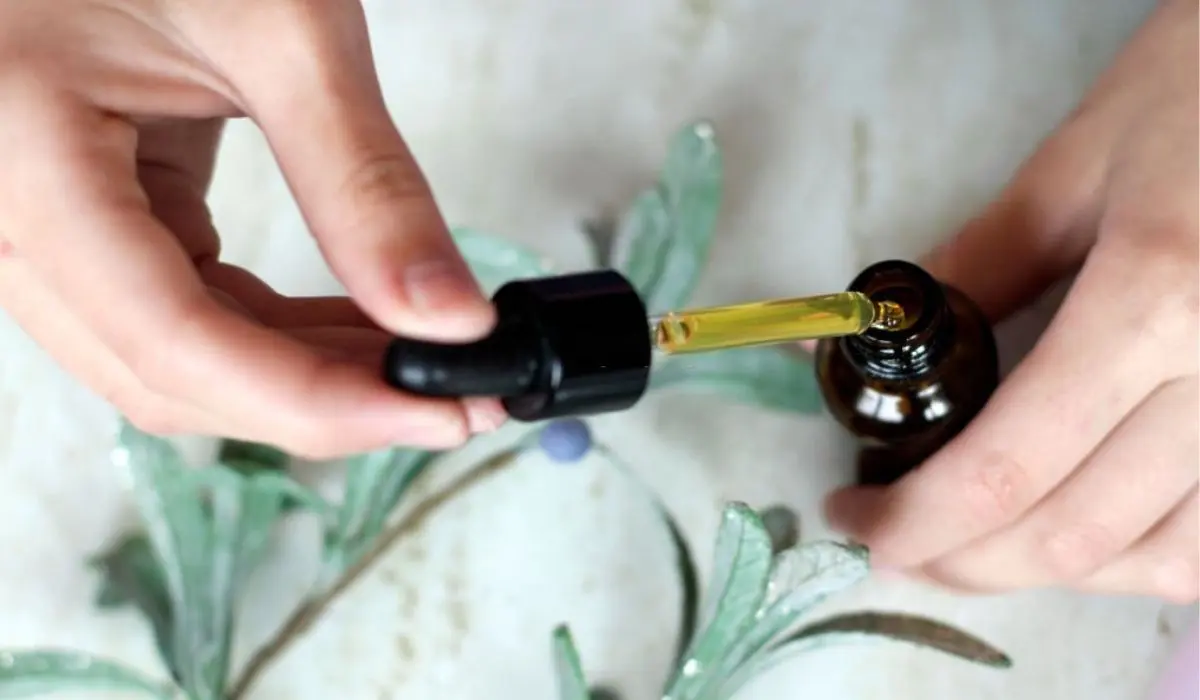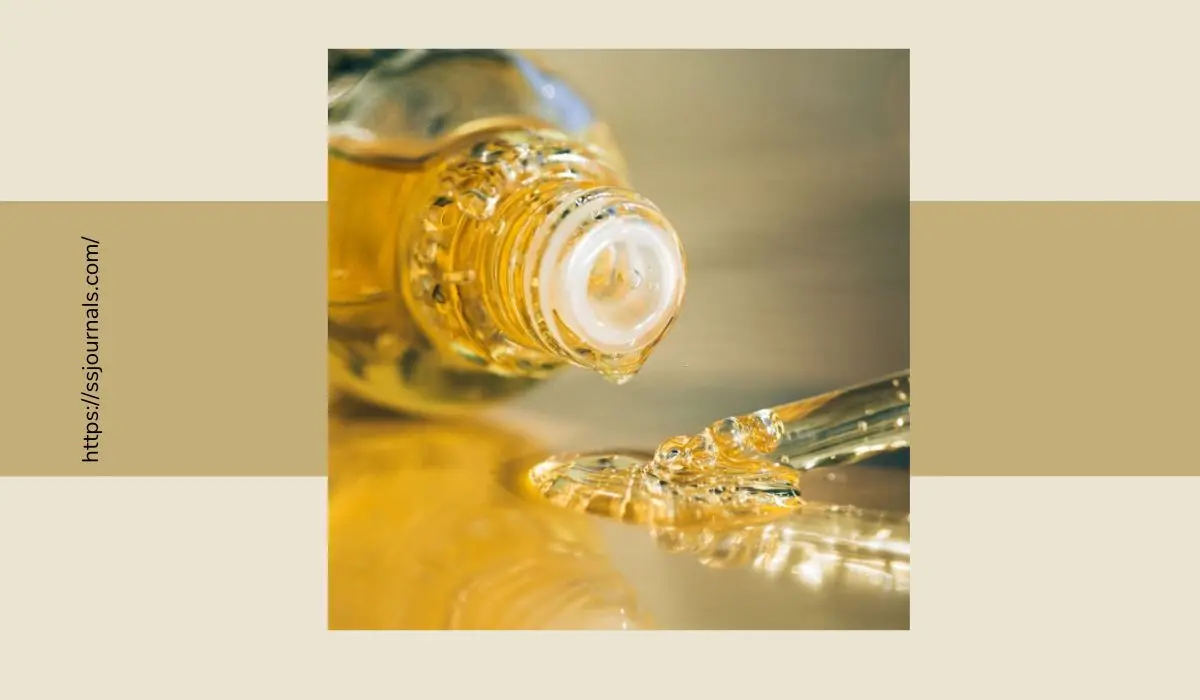Ear infections are a common illness, especially in children, causing ear pain, swelling, and temporary hearing loss. While antibiotics are often prescribed for bacterial ear infections, using essential oils is emerging as a natural therapy that may support healing and relief without antibiotics’ downsides. In this article, we’ll explore how essential oils may help treat ear infections.
Treating Ear Infections With Essential Oil
Certain essential oils have natural antibacterial, anti-inflammatory, and analgesic properties that make them promising alternatives for ear infections.

Popular oils used include tea tree, basil, oregano, thyme, lavender, and eucalyptus oils. Using oils can reduce ear infection symptoms, support the immune system, and assist the body in healing.
Essential oils should never replace professional medical treatment for serious infections. But they may help complement prescription antibiotics or ease discomfort from viral ear infections where antibiotics aren’t indicated.
Used properly, essential oils are generally safe and avoid the overuse of antibiotics which can lead to resistance.
How Essential Oils Work For Ear Infections?
Essential oils are concentrated plant compounds extracted through distillation. Many oils exhibit natural antimicrobial, anti-inflammatory, and pain-relieving properties when applied topically. Here’s how they may help ear infections:
➔ Fight infection
Oils like oregano, thyme, and tea tree have antimicrobial and antibacterial compounds shown in research to combat infectious bacteria like Streptococcus pneumoniae and Haemophilus influenzae which commonly cause ear infections.
➔ Reduce inflammation
Basil, lavender, eucalyptus, and other oils provide anti-inflammatory agents that can soothe swollen, inflamed ear tissue. This reduces pain and swelling.
➔ Ease pain
The natural analgesic properties in oils like lavender can numb earache discomfort and relieve pain sensations when applied topically.
➔ Boost immunity
Oils such as eucalyptus and oregano contain antioxidants that support a healthy immune response. A strong immune system helps resist infection.
➔ Improve congestion
Decongestant oils like eucalyptus may drain excess ear fluid and improve symptoms like muffled hearing.
Applying a blend of antibacterial, anti-inflammatory, and pain-relieving essential oils around the outer ear area allows the oils’ therapeutic compounds to work synergistically, providing multi-action relief. Always dilute oils properly before use.
Related: Is There Any Connection Between Ear Infection And Hearing Loss?
The Best Essential Oils For Ear Infections
Certain essential oils have natural antibacterial, anti-inflammatory, and pain-relieving properties that may help provide relief for ear infections. Some of the most commonly used oils include:
➔ Tea tree oil
Has antiviral, antimicrobial, and anti-inflammatory compounds that can help fight infection and reduce swelling.
➔ Lavender oil
Contains analgesic and anti-inflammatory properties to relieve pain and soreness. Also helps soothe swelling.
➔ Basil oil
Has antimicrobial and anti-inflammatory agents to combat infection and reduce inflammation.
➔ Oregano oil
Exhibits antimicrobial, antibacterial, and antiviral properties to fight underlying infection.
➔ Thyme oil
Provides antibacterial, antimicrobial, and anti-inflammatory compounds to tackle infection and swelling.
➔ Eucalyptus oil
Works as a decongestant by helping to clear ear congestion and drain fluid buildup.
More: Understanding Common Ear Infections: Causes, Symptoms, And Prevention
Conclusion
In conclusion, essential oils like tea tree, lavender, thyme, and oregano may provide helpful natural relief for painful ear infections when used safely and correctly.
Their antimicrobial, anti-inflammatory, and analgesic compounds can work together to fight infection, reduce swelling, and ease pain when applied diluted around the outer ear area.
However, essential oils do not replace necessary medical treatment for serious infections. Seek prompt professional care for any worsening symptoms. Essential oils may provide complementary therapy alongside antibiotics or help soothe viral ear infections.
More research is still needed, but used properly, essential oils can be a useful natural addition to treat ear infection discomfort. As always, consult your healthcare provider before use if you have any concerns.
Frequently Asked Questions
Oils should never be put directly into the ear canal which could worsen swelling. Instead, carefully apply diluted oils around the outer ear area. Oils can be diluted in a carrier oil and massaged around the ear lobe, behind/over the ear, and on the neck near the ear
A combination of different oils will provide maximum relief. Tea tree and basil oils are great antibacterials. Lavender, oregano, and thyme ease pain. Eucalyptus and peppermint help open congestion. Mix together for combined effects.
Always dilute essential oils before topical use to prevent skin irritation. For adults, add 2-3 drops of essential oil to 1 teaspoon of carrier oil like coconut or olive oil. For children, use 1 drop of essential oil for every 3 teaspoons of carrier oil.
Essential oils can be gently applied around the outer ear up to 3 times daily for an active ear infection. Treatments may be continued 3-5 days after symptoms resolve to ensure the infection has cleared.
Certain essential oils are considered safe for use in children over 2 years old when properly diluted. Use gentler oils like lavender and avoid stronger oils like oregano in young children. Discontinue use if any skin irritation develops.

